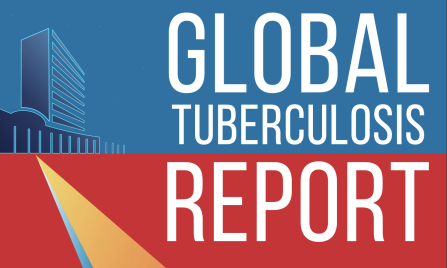-
Who we are
WHO WE AREThe International Organization for Migration (IOM) is part of the United Nations System as the leading inter-governmental organization promoting since 1951 humane and orderly migration for the benefit of all, with 175 member states and a presence in 171 countries.
-
Our Work
Our WorkAs the leading inter-governmental organization promoting since 1951 humane and orderly migration, IOM plays a key role to support the achievement of the 2030 Agenda through different areas of intervention that connect both humanitarian assistance and sustainable development.
What We Do
What We Do
Partnerships
Partnerships
- Where we work
-
Take Action
Take Action
Work with us
Work with us
Get involved
Get involved
- Data and Research
- 2030 Agenda
As the world joins forces to combat the new coronavirus disease (COVID-19) pandemic, we must not forget about the world’s number 1 infectious killer, tuberculosis (TB), and its devastating health, social and economic consequences on the world’s most vulnerable.
According to the World Health Organization (WHO), each day, over 4,000 people die from TB and close to 30,000 people contract this preventable and curable disease.
- Five things to know about migrants and TB
-
TB disproportionately affects poor and marginalized populations
The sub-standard conditions in which some migrants may be forced to travel, live and work, can increase their vulnerability or exposure to TB. Migrants, regardless of their legal status, may face food insecurity and malnutrition, or end up facing systemic barriers to accessing health care. Other vulnerable populations may be detained in over-crowded facilities or live in camps as refugees or internally displaced persons, with no or inadequate access to TB medicine, which can lead to the development of drug-resistant forms of TB.
All of the above are major risk factors for TB, and therefore, the realization of true Universal Health Coverage, one that leaves no migrant behind, is critical in ensuring that TB is eradicated for everyone one day.
Stigma and discrimination remain major obstacles in tackling TB worldwide
Because important public health messaging often fails to reach the most vulnerable people in a society, TB health literacy is relatively low among migrants and refugees: migrants with pulmonary and extra-pulmonary TB may be unaware of the signs and symptoms, which makes them less likely to seek treatment, or know how to protect their loved ones from catching it. Those who are informed and have identified their symptoms — persistent cough, night sweats and weight loss — may be reluctant to provide this medical history to health workers, for fear of stigmatization or losing the opportunity to be resettled.
In order to adequately tackle this global challenge, it is critical that migrants and refugees be informed in their own languages of the risks of TB, and that they feel safe enough to seek help, without fear of stigmatization, arrest or deportation.
TB detection and management services are provided for refugees and migrants at the request of receiving country governments
In the migration context, tuberculosis detection and control continue to be an important public health concern for both countries of origin and destination, as well as migrants and their families. IOM contributes to cross-border tuberculosis detection and control by providing a wide variety of tuberculosis-related services, from diagnostics to treatment, as well as public health measures, such as contact tracing and health education. These services are provided through more than 65 IOM Migration Health Assessment Centres (MHAC) worldwide, most of which are located in countries with an intermediate or high burden of TB.
In 2022, IOM conducted approximately 1.3 million radiological investigations for TB
Worldwide, in 2022, IOM conducted approximately 1.3 million radiological investigations for TB, and directly supported 21,500 people with (or referred for) TB treatment. Active TB cases were either confirmed by sputum culture or diagnosed based on clinical and radiological findings. Treatment for active TB cases detected by IOM health assessment programmes is provided either directly by IOM or via a referral system, in partnership with national TB programmes (NTPs).
Every year, IOM accompanies hundreds of migrants through their treatment
TB treatment requires discipline and perseverance: in the best of cases, the patient has to take only one pill every day for six months; in the worst case, the treatment involves a cocktail of pills that are preferably taken on an empty stomach, every single day, six to 12 months. Nausea, dizziness, pains, fatigue… the side effects can be extremely heavy and adhering to the requirements is often challenging, especially without a solid social support system or due to mental health issues.
Directly observed treatment (DOT) is the internationally recommended strategy for TB control and is used by IOM’s MHACs wherever possible to increase patients’ adherence to and completion of TB treatment. At IOM’s MHAC in Nairobi, Kenya, for example, IOM’s TB DOT success rate stands at 96%.
Tuberculosis is preventable. Tuberculosis is treatable. It’s time to put an end to it by including migrants in our efforts to tackle it.







